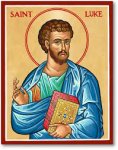Here is an idea that is not backed up by tradition, but may match the clues in the New Testament.
1 Peter was written to the Jews who were in modern-day Turkey, likely including those who were present at Pentecost (Acts 2:9-10). He had help from Silvanus (aka Silas) (1 Peter 5:12). Peter and Silas are only mentioned together in Acts 15.
So here's my imaginary backstory for 1 Peter. Let me know if it sounds plausible:
Paul and Barnabas tell the Jerusalem council about miracles among the Gentiles from Paul's First missionary journey (Acts 15:12). They may have mentioned persecution, which would explain why Peter talks about persecution. Peter asks Silas to send greetings to these far away people, after Silas goes to Antioch, Syria, and Cilicia (Acts 15:23, 27). Paul did not mention sending the letter to anyone in Greece because Paul didn't preach the gospel there yet. Silas therefore plans to travel to Pontus, Galatia, Cappadiocia, Asia, and Bithniya (1 Peter 1:1). So when Paul and Silas go on Paul's second missionary journey, they are travelling in the direction of Galatia, Asia, Mysia, Bithynia, but is redirected to Macedonia (Acts 16:6-10).
Peter was writing to the dispersion, but noted that he too was a pilgrim and a stranger on earth (1 Peter 1:1; 2:11). Peter emphasizes this by saying the Jerusalem church (at "home") was in Babylon (away from home) (1 Peter 5:13).
1 Peter was written to the Jews who were in modern-day Turkey, likely including those who were present at Pentecost (Acts 2:9-10). He had help from Silvanus (aka Silas) (1 Peter 5:12). Peter and Silas are only mentioned together in Acts 15.
So here's my imaginary backstory for 1 Peter. Let me know if it sounds plausible:
Paul and Barnabas tell the Jerusalem council about miracles among the Gentiles from Paul's First missionary journey (Acts 15:12). They may have mentioned persecution, which would explain why Peter talks about persecution. Peter asks Silas to send greetings to these far away people, after Silas goes to Antioch, Syria, and Cilicia (Acts 15:23, 27). Paul did not mention sending the letter to anyone in Greece because Paul didn't preach the gospel there yet. Silas therefore plans to travel to Pontus, Galatia, Cappadiocia, Asia, and Bithniya (1 Peter 1:1). So when Paul and Silas go on Paul's second missionary journey, they are travelling in the direction of Galatia, Asia, Mysia, Bithynia, but is redirected to Macedonia (Acts 16:6-10).
Peter was writing to the dispersion, but noted that he too was a pilgrim and a stranger on earth (1 Peter 1:1; 2:11). Peter emphasizes this by saying the Jerusalem church (at "home") was in Babylon (away from home) (1 Peter 5:13).
-
1
- Show all

